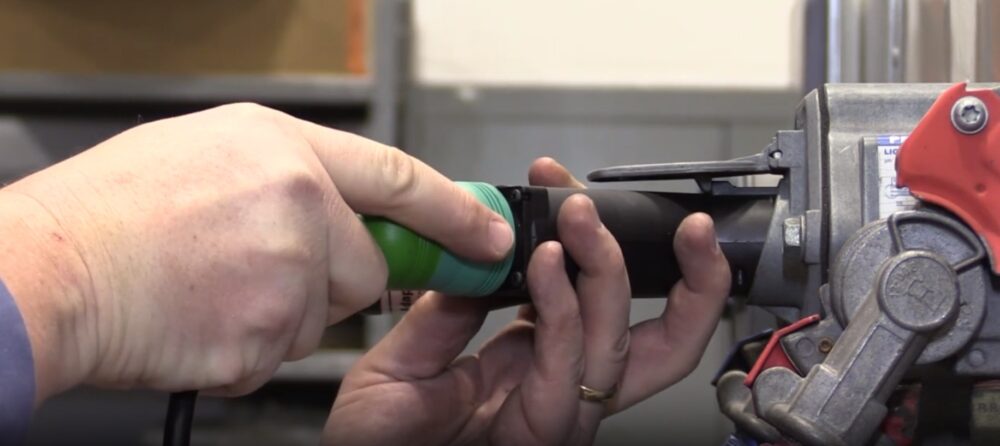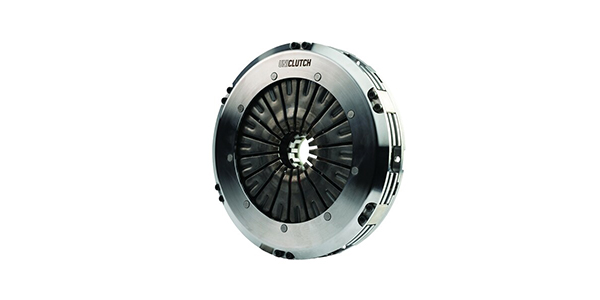Your sniffling, sneezing customers could be just the sales opportunity your shop was itching for. That’s because consumers with severe allergies could benefit the most from a replacement of their vehicle’s cabin air filter (CAF).
Allergy-affected customers may be the only ones you have who even know that their vehicle contains a cabin air filter. Other than that, most people don’t realize that their car may feature a part that filters the harmful chemicals that reach the passenger compartment of the vehicle, and that this part requires regular maintenance.
Granted, not all vehicles have a CAF yet, but more and more do and will in the future. CAFs used to be found only in high-end European vehicles but are now found in approximately 40-50% of new vehicles on the road today. Some experts predict that by next year that number will be up to 60-80%.
The unfiltered air inside the cabin can have six times the pollen, bacteria, dust and mold spores as outside air. “That is because vehicles in front of your car produce an ‘exhaust tunnel,’ and these gases are drawn into the passenger compartment in a concentrated form,” according to a leading filter manufacturer.
Urbanization, population density and traffic jams also contribute to the air quality problems in our country. Approximately 50 million people suffer from hay fever and other allergy-related problems. An even larger number of people live in areas of the country that do not meet the EPA’s national air quality standards.
Filter Function
The typical CAF is located in the fresh air intake system. When the vehicle is in motion, or when the ventilation system is in use, all impurities that are present in the outside air are sucked into the cabin like a vacuum. At this point, there can be a dangerous concentration of pollutants and toxic gases. This creates a need for the filtration of the outside air, which is particularly important for the passengers in the vehicle. Unclean air can lead to allergic reactions and represent an acute danger when traveling. Nitric oxide (NO2), for example, can cause an asthma attack.
According to the Filter Manufacturers Council (FMC), the CAF was initially designed to remove solid contaminants such as dust and soot. Typically, CAFs capture more than 95% of all particles 3 micron and greater. In addition, a high percentage of contaminants below 3 micron should be removed at an acceptable pressure drop. Particulate in this range would include pollen, exhaust soot, bacteria, insecticides and mold spores, the common cause of that stale, musty smell emitted from the vehicle’s air vents. It is noteworthy that the majority of particulate matter below 1 micron in size is man-made: exhaust gas particulate, industrial dust, carbon black, cigarette smoke, etc.
The FMC also noted that all cabin air filters remove solid matter, but not all of these designs filter out odors. So just because a customer has a cabin air filter and smells smoke strongly doesn’t mean the filter is bad.
Replacement Recommendations
The Car Care Council recommends that cabin air filters should be replaced according to owners’ manual guidelines, usually every 15,000 miles, under normal driving conditions. It’s not uncommon, however, for cabin air filter replacement to be overlooked in the owner’s manual. Do not try to clean this filter and reinstall it. For best results, consult filter manufacturer application charts to see if the vehicle you’re servicing is listed.
If a CAF is not changed regularly, the efficiency of the fresh air intake system will be diminished, there could also be a decrease in heating and air conditioning performance caused by restricted air flow through the filter. Other consequences of not changing CAFs could be burned-out blower motors and/or fan resistors.
If you haven’t already, add “Check Cabin Air Filter, Replace if Necessary” to your service checklist for every vehicle that comes into your shop. This provides your shop a great sales opportunity that you may be missing out on.
The following are comments regarding Cabin Air Filters from techs using the International Automotive Technicians’ Network (iATN). For more information on iATN, visit its webpage at www.iatn.net.
A diagnostic note: When you find better air flow through vents in “max” or recirculation mode than in “normal” mode, it often means the cabin air filter is clogged. Often, the customer has left the system on “max” when you see his car for service if he has discovered this.
– Ted from Maryland
The 2000 and older Chrysler/Dodge/Plymouth minivans (NS) have a different filter than the 2001 and newer (RS) models.
The “NS” one is under the wiper module and is serviced from the outside (and has been discontinued). None came equipped with it from the factory, and it was introduced late as an accessory, so very few will have it.
The “RS” version is under the right-side dash; a small plastic shield must be removed from the HVAC box, and the filter pulled down and bent in two for removal and reinstallation.
– Thomas from New York
We have been selling these as part of routine services for a while now. These are also an easy sell in smog-choked Atlanta, especially when I show customers the difference in the old vs. the new.
– Steve from Georgia
We have a used one sealed in a plastic bag on the write-up counter. Easy sale most of the time when the writer brings up the subject.
– Tim from Illinois
First, it is easy money that should not be left on the table. Secondly, when you see how ugly they can be, it makes you feel good about really helping someone. I just wish some of the filters were easier to get in and out.
When I sell a maintenance service, I recommend an air filter, fuel filter and oil filter. Then, I add that I would like to replace the filter for “you” – the one that filters the air you breathe. Nine out of 10 customers do not know that they even have one in their car. It’s a very easy and profitable item to sell.
– Howard from Pennsylvania
We are seeing them in more and more cars, not just the high-dollar German cars. They can be a good added service, are included in some service requirements and can be the cause of poor air flow in the ventilation system. So here is a “how to” for Mercedes-Benz 140 chassis.
Here are a few components that you will see while you are in there. I give the vent system a shoot of BG “Frigi Fresh” to kill bacteria. Just turn the defroster on and shoot it in the blower. It gives the car a nice fresh smell. Sometimes they don’t always see what we do to their cars, so this will give them a sense of value for the money they just spent. Just pop the new filter in and put it all back together.
We’re not done yet. These cars have a filter for the inside of the cabin too. It is located under the right side of the dash. It filters the recirculating air of the car. This one is easy to replace too.
– Thomas from Iowa
Informing your customers that dirty cabin air filters can actually cause illness from mould spores, pollen and dust helps sell the filters. I usually don’t see cars until they’re five years old and 60,000 miles or so. Most have the original filters.
– Glenn from Louisiana
We need to be sure to recommend that these filters be changed. The consequences of not changing them will be burned out blower motors and/or fan resistors. I have seen several cases of both in BMWs and all of the filters that I remove are filthy and blocked. – David from Tennessee
We change them during regular services just like air and fuel filters.
– Neil from South Carolina
We check every car that comes in the door after replacing one on a Ford Taurus that was clogged and causing low air flow!
– James from New Jersey
I found a clogged filter on a Lincoln Continental about a year and a half ago. They had the car in three or four times for smells coming from the vents. I went through all of the procedures Ford recommends for this and it was still there. Just on a guess I pulled the cabin air filter out, and it was filled up with mouse poo. I replaced it, and there was no more smell.
– Brian from Michigan


